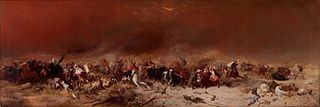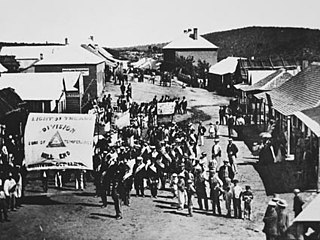 W
WThe history of Australia is the story of the land and peoples of the continent of Australia. Aboriginal Australians first arrived on the Australian mainland by sea from Maritime Southeast Asia between 40,000 and 70,000 years ago, and penetrated to all parts of the continent, from the rainforests in the north, the deserts of the centre, and the sub-Antarctic islands of Tasmania and Bass Strait. The artistic, musical and spiritual traditions they established are among the longest surviving such traditions in human history.
 W
WThis article covers the science, art and industry of cartography by the people of the Low Countries in the early modern period, especially in the early 16th to early 18th centuries. It includes cartography of the Northern Netherlands, Southern Netherlands and Low Countries in general. It also includes Dutch colonial cartography, i.e. cartography in the Dutch overseas world, in the early modern period.
 W
WIslam in Australia is a minority religious affiliation. According to the 2016 Australian Census, the combined number of people who self-identified as Muslim in Australia, from all forms of Islam, constituted 604,200 people, or 2.6% of the total Australian population, an increase of over 15% of its previous population share of 2.2% reported in the previous census 5 years earlier. Of that earlier 2.2% figure, "some estimate more than half are non-practicing" cultural Muslims stemming from all the varying denominations and sects of Islam present in Australia.
 W
WThe name Australia is derived from the Latin australis, meaning "southern", and specifically from the hypothetical Terra Australis postulated in pre-modern geography. The name was popularised by the explorer Matthew Flinders from 1804, and it has been in official use since 1817, replacing "New Holland," the Dutch name, as the name for the continent.
 W
WThe Shadowcatchers: A history of cinematography in Australia is a photographic history of Australian cinematography, written by Martha Ansara and published by the Australian Cinematographers Society, which launched the project for its 50th Anniversary in 2008.
 W
WThe Street family is an Australian legal, political and military family. The dynasty was founded by John Rendell Street, a 19th century banker and politician. In the 20th century, John's son Sir Philip Whistler Street, grandson Lieutenant-Colonel Sir Kenneth Whistler Street, and great-grandson Colonel Sir Laurence Whistler Street each became Chief Justice of the Supreme Court of New South Wales and Lieutenant-Governor of New South Wales. Brigadier Geoffrey Austin Street was Minister of Defence in World War II, his son Anthony Austin Street was Minister of Foreign Affairs, and the human rights campaigner Lady "Red Jessie" Street was Australia's first female delegate to the United Nations. In the 21st century, Sir Laurence's son Commander Alexander "Sandy" Street, daughter Lieutenant-Commander Sylvia Emmett and son-in-law Arthur Emmett are federal judges.
 W
WThe Temperance movement in Australia is a movement that aims to curb the drinking of alcohol. It had some success in the early twentieth century, although from the Second World War its influence declined. Nevertheless, temperance organisations continue to remain active today.
 W
WThe Territory of Papua and New Guinea was established by an administrative union between the Australian-administered territories of Papua and New Guinea in 1949. In December 1971, the name of the Territory changed to "Papua New Guinea" and in 1975 it became the Independent State of Papua New Guinea.
 W
WWestern civilization traces its roots back to Europe and the Mediterranean. It is linked to ancient Greece, the Roman Empire and with Medieval Western Christendom which emerged from the Middle Ages to experience such transformative episodes as the Renaissance, the Reformation, the Enlightenment, the Industrial Revolution, scientific revolution, and the development of liberal democracy. The civilizations of Classical Greece and Ancient Rome are considered seminal periods in Western history; a few cultural contributions also emerged from the pagan peoples of pre-Christian Europe, such as the Celts and Germans, as well as some significant religious contributions derived from Judaism and Hellenistic Judaism stemming back to Second Temple Judea, Galilee, and the early Jewish diaspora; and some other Middle Eastern influences. Western Christianity has played a prominent role in the shaping of Western civilization, which throughout most of its history, has been nearly equivalent to Christian culture.. Western civilization has spread to produce the dominant cultures of modern Americas and Oceania, and has had immense global influence in recent centuries in many ways.